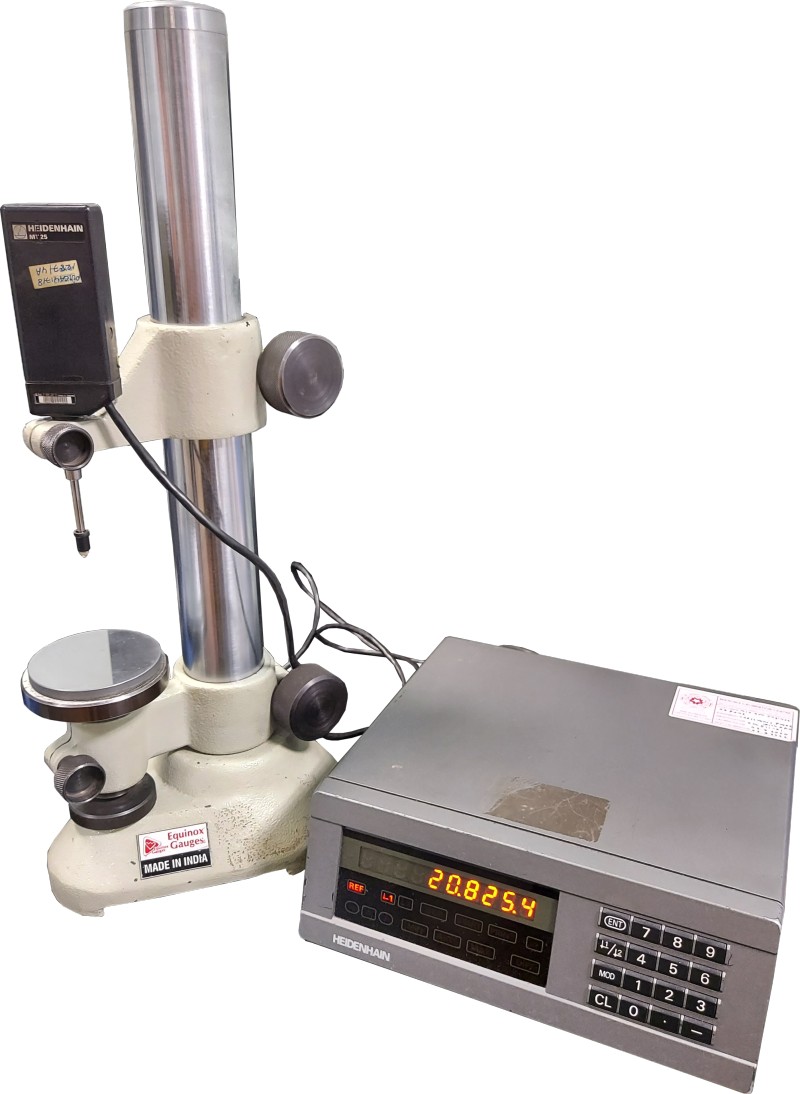
FAQ's
Which agency should be considered competent for calibration of measuring equipment?
The laboratory accredited under ISO/IEC 17025 should be considered as competent agency for performing calibrations of your equipment. ISO /IEC 17025 is the International Quality Standard, which gives the general requirements for competence of testing and Calibration Laboratories. also, please note that, the Original Equipment manufacture’s certificates are also considered as valid calibration certificate with indication of traceability.
In India who accredits the laboratories for their compliance with ISO/ IEC 17025?
In India NABL is the National accreditation board , working under Dept. of Science & Tech. Govt. of India, who accredits the laboratories for compliance with ISO/IEC 17025. During accreditation period, the accreditation body (NABL) conducts periodic quality audits to confirm the compliance of laboratory, with the requirements of ISO 17025 Quality System, their competency in calibration or testing work and traceability with national / international standards. Since, NABL is also a member of APLAC ( Asia Pacific Laboratory Accreditation Cooperation) & ILAC (International Laboratory Accreditation Cooperation) , accreditation by NABL has global acceptance.
What is laboratory accreditation?
The concept of Laboratory Accreditation was developed to provide a means for third-party certification of the competence of laboratories to perform specific type(s) of testing and calibration.Laboratory Accreditation provides formal recognition of competent laboratories, thus providing a ready means for customers to find reliable testing and calibration services in order to meet their demands.
Laboratory Accreditation enhances customer confidence in accepting testing/ calibration reports issued by accredited laboratories. The globalization of Indian economy and the liberalization policiesinitiated by the Government in reducing trade barriers and providing greater thrust to exports makes it imperative for accredited laboratories to be at international level of competence.
Why laboratory accreditation is required?
Laboratory Accreditation provides formal recognition of competent laboratories, thus providing a ready means for customers to find reliable testing and calibration services in order to meet their demands.
Laboratory Accreditation enhances customer confidence in accepting testing/ calibration reports issued by accredited laboratories. Society also needs to know the technically competent laboratory in fields such as Medical, Forensic, Food Testing etc.The globalization of Indian economy and the liberalization policies initiated by the government in reducing trade barriers and providing greater thrust to exports makes it imperative for accredited laboratories to be at international level of competence.
Why use an accredited laboratory?
Laboratory accreditation provides a means of evaluating the competence of laboratories to perform specific types of testing, measurement ad calibration. It also provides feedback to laboratories as to whether they are performing their work in accordance with international criteria for technical competence. Manufacturing organizations may also use laboratory accreditation to enhance the testing of their products by their own in-house laboratories.
Very importantly, accreditation provides formal recognition of competent laboratories, thus providing a ready means for customers to find reliable testing and calibration services to meet their needs.
How do I know a laboratory is accredited by NABL?
Accredited laboratories are required to include NABL symbol on their test or calibration reports. Indicating their accreditation. You should check with the laboratory as to what specific tests or calibrations they are accredited for, and for what ranges or uncertainties. You should request a list of test and / or calibration for which the laboratory is accredited. This is specified in a laboratory’s Scope of Accreditation issued by NABL along with Accreditation Certificate.
Which parameter should be considered while deciding the frequency of calibration of measuring instruments?
1.Tendency to Wear & drift
2.Manufactures recommendation
3.Environmental Conditions
4.Trend data obtained form previous Calibration Certificate
5.Frequency & quality of intermediate checks in the mean time.
6.Transportation arrangement & risk
7.Skill of Person
8.Uncertainty of Measurement
9.Risk of a measuring instrument exceeding the limits of the maximum permissible error when in use
10.Cost of Calibration
Is it required the Traceability certificate for every Calibration Certificate?
Certificates need not to be supported by Traceability certificates as a proof for Traceability, because NABL Logo on certificates is considered the sufficient evidence for Traceability.